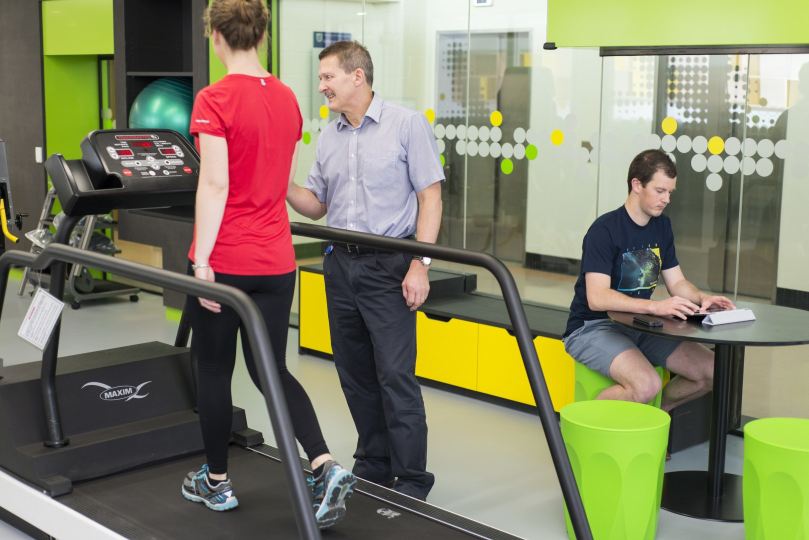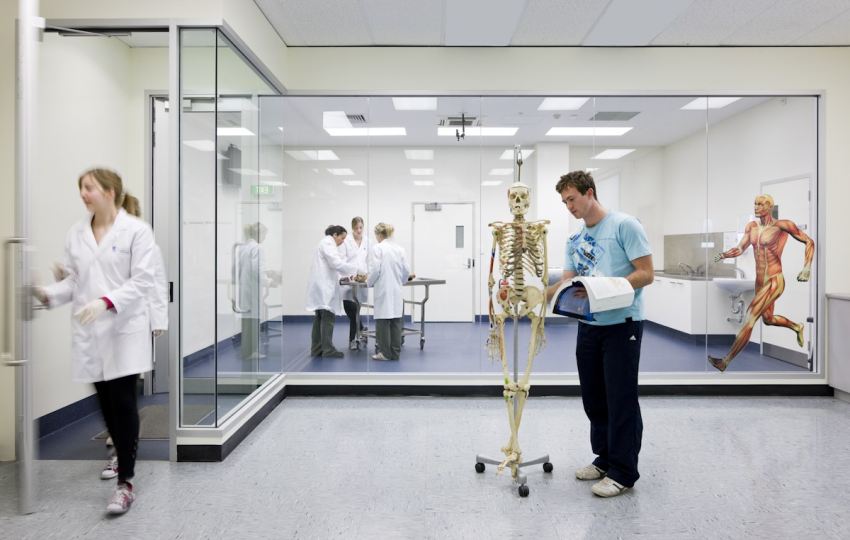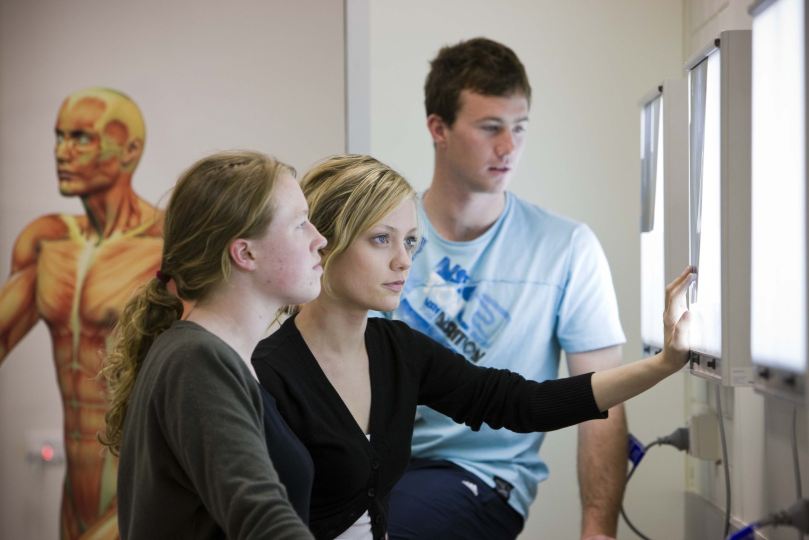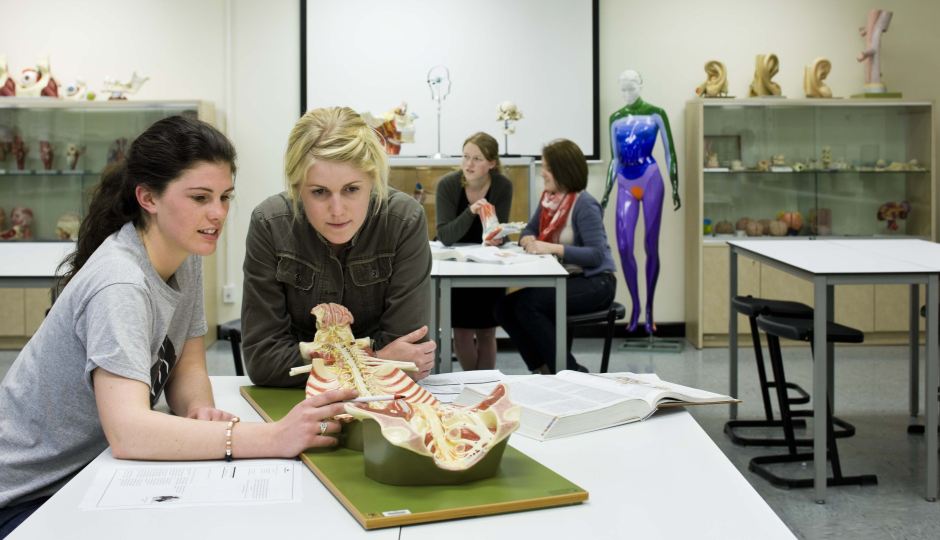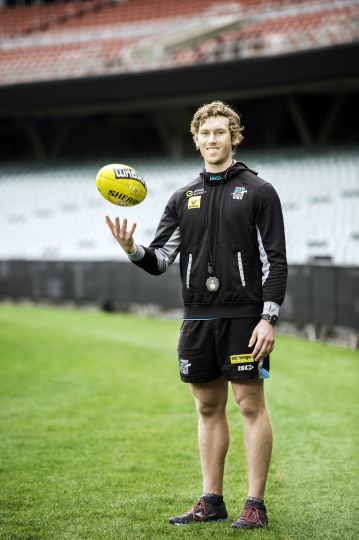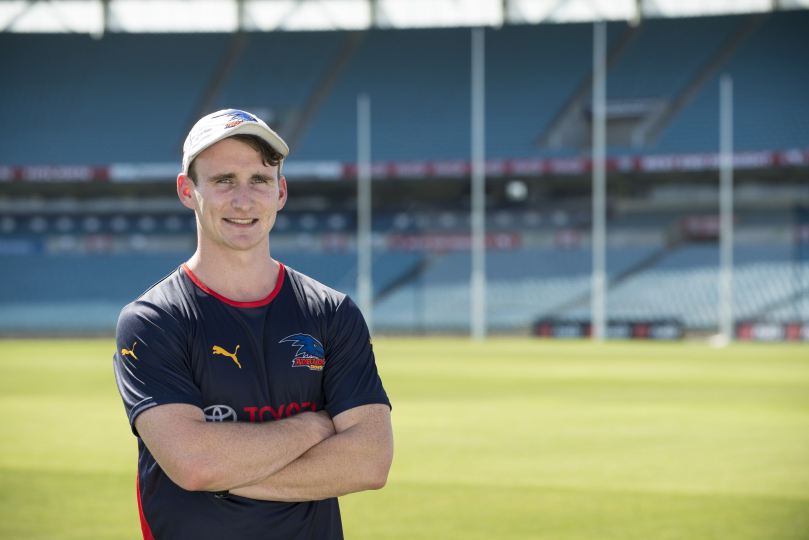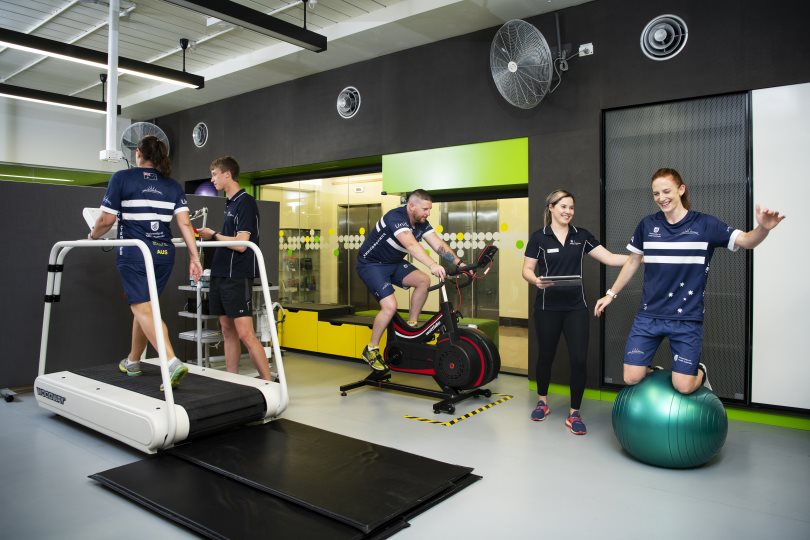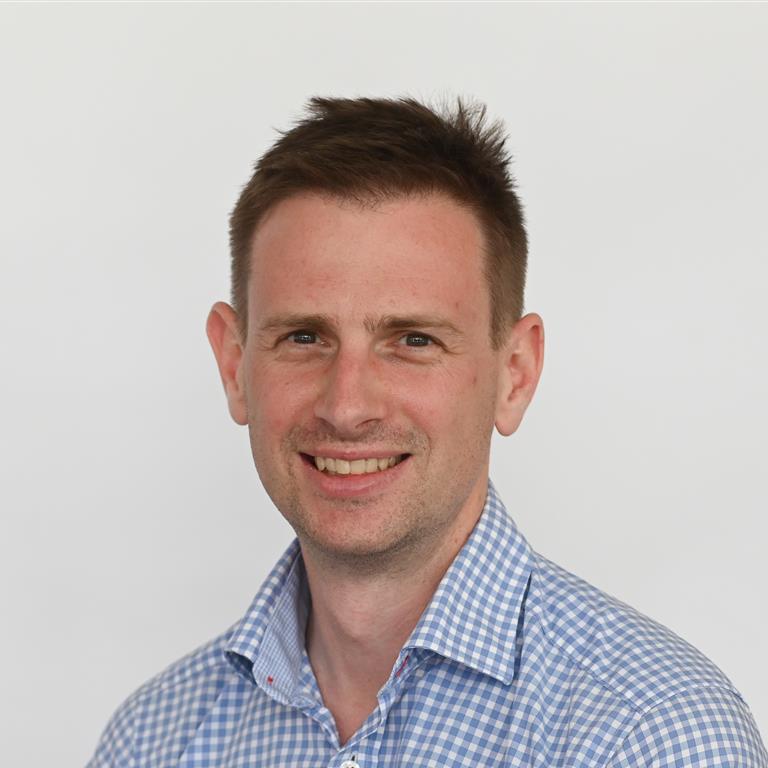Bachelor of Exercise and Sport Science
Degree Level Undergraduate
Year 2024
You're considered an Australian student if you are any of the following:
Degree Level Undergraduate
Year 2024
Entry Scores
2024 Guaranteed Entry
Year 12 (ATAR-based): 90.00
Year 12 (Grades-based): A,A,A
TAFE/RTO: DIP
View Guaranteed Entry Info
2023 Cut-Offs
Year 12 (ATAR-based):
- Internal: 80.00
TAFE/RTO: Dip
View full entry requirements
The admission criteria have been grouped to assist you to easily find the information most relevant to your circumstances. However, you may fit into more than one and the university will consider applicants against each of the relevant criteria.
Certain conditions apply. For more information refer to Appendix 4 of the University's Selection and Entry policy.
Applicants are required to meet one of the following criteria with a competitive result, and demonstrate that they fulfil any prerequisite requirements and essential requirements for admission:
Recent secondary education
Meet any prerequisite requirements with a minimum grade of C- or equivalent
AND
Applicants who have not achieved the Selection Rank required for automatic selection may be selected for any remaining places based on the grades of their year 12 subjects.
OR
Higher education study
OR
Vocational Education and Training (VET)
OR
Work and life experience
Students commencing in July will follow an alternate degree structure to accommodate starting in Second Semester.
1Ranked #35, 2021 Shanghai Global Ranking of Sport Science Schools and Departments. 22023 QS Subject Rankings, Sport-Related Subjects. 3Results in Human Movement and Sports Science - 2018 Excellence in Research for Australia (ERA). 4Ranked #52, 2023 THE Young University Rankings.
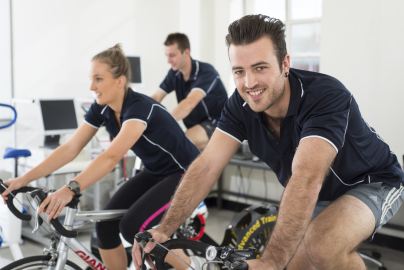
Turn your passion for exercise into an unstoppable career, studying South Australia’s first fully accredited exercise and sport science degree1 from the state’s No.1 university for graduate careers in health.2
With this highly sought-after degree, you’ll become an expert in understanding the long-term positive effects of exercise on people’s physical and mental health, as well as the knowledge and skills to increase athletic performance and wellbeing. As a hands-on degree, you'll benefit from practical learning opportunities, and will be guided by leading exercise and sport science experts.
Increase your employment opportunities by combining your exercise and sport science degree with a complimentary degree in Nutrition and Food Sciences or Psychology (Counselling and Interpersonal Skills), allowing you to graduate with two qualifications with just one year of extra study.
1Exercise and Sport Science Australia (ESSA). 2ComparED (QILT) Graduate Outcomes Survey 2020-22, Health Services and Support – Overall Employment Indicator (Domestic Undergraduate). SA public universities.
Students undertaking activities involving interaction with patients/the public as part of their degree, such as field or clinical placements/visits and in University clinics and gyms, must demonstrate they meet mandatory pre-placement conditional requirements. These include criminal history clearance, a Working with Children Check and immunisation requirements.
Please visit the Clinical Placement Unit for information on key requirements, and to access the full student checklists.
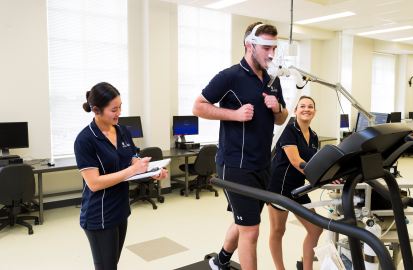
You’ll develop effective practical and communication skills to conduct laboratory and field testing, and interpret scientific research. You’ll learn how to conduct physical performance tests to measure strength, fitness, oxygen usage and body composition.
This degree prepares you to confidently advise on exercise plans, and deliver strength and conditioning services. The curriculum teaches biomechanical analyses and skill acquisition knowledge to enhance people’s physical and mental wellbeing – from children to elite athletes to the elderly.
During your first year you’ll develop a solid understanding of:
In your second year you'll focus on:
In your final year of study, you’ll focus on professional studies, the application of exercise science, and sociology of health and physical activity. Additionally, you can tailor your degree with a range of elective courses aligned with your career aspirations. Some of these courses will allow you to upskill, as they provide you with additional industry certificates upon successful completion in areas such as Level 1 Sports Training.
You can gain an extra qualification and broaden your career prospects by completing a Diploma in Languages.
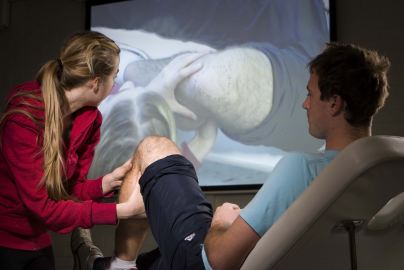
Ranked 35 in the world for sport science,1 UniSA’s expert teaching staff and dedicated learning facilities mean you’ll get the very best foundations for a healthy career.
This degree is a great choice for students interested in the science behind exercise and sport, to inspire all Australians to be healthier and more active, and perform at their best.
You’ll learn how to design, deliver and assess exercise and physical activity programs to improve the health, wellbeing and performance of clients, their performance and to reduce risk of cardiovascular diseases and diabetes. You’ll also get valuable exposure to high profile exercise and sport science industry partners from a range of elite and local sporting organisations through industry placement opportunities.
You’ll benefit from UniSA's on-campus facilities including the High Performance Sport Centre, exercise physiology clinics, Environmental Chamber and UniSA Sport gyms. Learning in these facilities is a great way to develop practical skills and experience the hands-on nature of this growing industry. UniSA is also heavily involved with quality research, and is home to the highly regarded Alliance for Research in Exercise, Nutrition and Activity (ARENA).
Graduates are eligible to apply to become an Accredited Exercise Scientist through Exercise and Sport Science Australia (ESSA).
1Ranked #35, 2021 Shanghai Global Ranking of Sport Science Schools and Departments.
Tertiary-trained exercise and sport science professionals are in growing demand.1 As the health and wellbeing industries continue to grow, employment prospects for graduates of this degree are promising. According to Exercise and Sport Science Australia’s Future Workforce Report, the increased need for effective evidence-based programming for a society with escalating chronic disease is driving this growth.
You could find yourself working in a range of positions in the sport, fitness, rehabilitation, health, government, aged care, education or recreation industries. You may also work across other industries where high levels of education, leadership, communication and organisation are valued.
Careers to consider include:
Become even more employable by combining your exercise and sport science degree with another degree, allowing you to graduate with two qualifications with just one year of extra study. Your options include Nutrition and Food Sciences or Psychology (Counselling and Interpersonal Skills).
If you finish your degree with a credit or higher grade point average (GPA) you could also be eligible for postgraduate study in physiotherapy.
1ESSA Future Workforce Report 2019.
View our guide on Active Careers for more information.
This degree is accredited by Exercise and Sport Science Australia (ESSA). Graduates are eligible to apply for registration as an Accredited Exercise Scientist through ESSA.
Applying to study with us:
Australian
There are other pathways you can follow to study this degree, including:International
There are other pathways you can follow to study this degree, including:
This degree is available for deferment. This option is made available by responding to your offer during the application process via the SATAC website. Applicants who receive an offer into a midyear degree are eligible to defer for six months.
Every year, over 2,500 UniSA students are supported in their studies through scholarships and grants worth millions of dollars. Check out the scholarships below. One of them may be perfect for you. Visit our scholarships page for more.
$5,000 scholarship for South Australian students with an ATAR of 99 who enrol to study a UniSA undergraduate degree.
Up to $10,000 per annum (full time) for South Australian students who obtain an ATAR of 99.95 or IB equivalent and enrol to study at UniSA.
Our campuses are home to fantastic facilities including modern lecture theatres, libraries, workshops and laboratories, as well as spaces that simulate real work environments. But you’ll also discover that your journey at UniSA is about social experiences, healthy living and getting involved. You’ll find student sports and fitness facilities, community clinics, tech zones and chill-out spaces. There are campus sport activities to keep you active, and if you are keen to explore the social side of university life, there are movies, cooking demonstrations, parties and loads more.
Adelaide also has a variety of accommodation options to suit different requirements and budgets. Options include dedicated student accommodation and private rentals. See our long-term accommodation pages, or explore our student accommodation by Scape on Bank Street in Adelaide’s lively cultural precinct, an ideal location for students. It is within easy reach of UniSA’s city and metropolitan campuses, Rundle Mall shopping, the Central Market, Chinatown, and the West End’s vibrant nightlife. It is also across the road from the Adelaide train station, and on bus and tram routes.

As a hands-on degree, you’ll benefit from UniSA’s practical approach to learning. You'll have access to facilities including:
From 2025, students in our Human Movement, Exercise and Sport Science and Clinical Exercise Physiology programs will benefit from an integrated practical learning experience with the South Australian Sports Institute (SASI). You can study alongside elite athletes and leading industry experts, and learn how to use the latest equipment and sport science technology in new, purpose-built facilities.
You’ll also have access to a range of on-campus spaces including modern lecture theatres, collaborative teaching rooms and relaxed student lounges.
I am proud to direct a program that is delivered by a team of highly-qualified researchers and educators with a genuine interest in developing students into industry ready graduates. This Exercise and Sports Science Australia accredited program utilises innovative and safe learning environments, and offers opportunities for practical experience within industry settings, to enable students to pursue excellence and fulfil their highest potential.
There are a number of ways to apply to study UniSA's undergraduate and postgraduate coursework degrees.
Applications for admission into the University of South Australia’s undergraduate and most postgraduate degrees are made via the South Australian Tertiary Admissions Centre (SATAC). Visit satac.edu.au and follow the links.
For the MBA degrees please apply through the UniSA MBA Application Portal. Applications for a small number of degrees are submitted direct to UniSA through our Apply Online portal. It will be noted on the degree page if you need to apply via Apply Online.
Postgraduate study by research
For information on applying to do postgraduate study by research, including Master of Research, PhDs or Doctorates, please visit unisa.edu.au/resdegrees.
Undergraduate
Yes. The deadline to apply to study a degree at UniSA for semester one (commencing late February) and be given equal consideration is in early December. While you may be able to apply after this date, you are not guaranteed to be considered equally with other applicants and your application may not be assessed in time for the main round of offers (mid January). Some degrees will not make any offers after the main offer round. Please click here find all of the key dates for applications here.
Postgraduate
Most postgraduate degrees do not have a closing date for applications. However, there are exceptions, so it is best to check – either on the SATAC website, Apply Online or the degree homepage. Postgraduate offers are normally ‘rolling’, meaning they may be sent out at any time up until the program starts. This also means that applications may close at any time without warning, if the quota is filled earlier. For this reason, postgraduate applications should be submitted without delay. For more information, please contact our Future Student Enquiries team on (08) 8302 2376 or via the online enquiry form.
Credit transfer or advanced standing
You may be eligible to receive a credit transfer or advanced standing for your chosen UniSA degree based on your previous studies, if they are in a related area at an equivalent or higher level. Receiving a credit transfer will reduce the number of courses you undertake within the degree, and may also reduce the overall duration of your degree.
Recognised prior learning
If you have related industry experience, you may also be eligible to receive recognised prior learning for this experience. Receiving recognised prior learning will normally reduce the number of courses you undertake within the degree, and can reduce the duration of the degree.
How do I get credit?
Credit transfer and recognition of prior learning is assessed on a case-by-case basis by the Program Director who will discuss your prior learning and experience with you to ascertain what credit you may be eligible for.
Many of our credit transfer arrangements are listed on our online Credit Assessor.
UniSA welcomes the opportunity to speak with you regarding your study options. Our staff are able to talk to you about degree information, career outcomes and pathways, entry requirements, applications, and student life, so that you are able to make the best study decision for your future.
Click here to book a 1:1 appointment with one of our enquiries team.
If you are interested in studying an MBA please contact admissions@unisa.edu.au and our Future Student Enquiries team will contact you regarding your enquiry.
Alternatively, you can complete a MyCareerMatch career profile. MyCareerMatch is an online career profiling tool that you can use free-of-charge through UniSA. MyCareerMatch specialises in career profiles and provides you with a personalised career report outlining information about your personality style and a list of career options, which are complementary to your natural strengths and talents.
We have many events throughout the year where you can speak with a lecturer or tutor about your degrees of interest. You can find out what is happening at UniSA by visiting our events page or by signing up to our mailing list, so you're the first to know about careers events, information sessions, degree requirements, scholarships and more!
There are also many career counsellors external to the University that you can discuss your career options with. If you are unsure where to start your search, you can contact the Government's Work Ready team (formally Skills for All). Visit skills.sa.gov.au or call 1800 506 266.
You may also find Job Outlook a helpful resource in your decision-making.
It can be difficult to decide what degree you would like to do and where. You might find information from government organisations will help to weigh up your degree and provider options.
Find a course or a provider
TEQSA is a regulatory body for higher education providers. Use the TEQSA national register of higher education providers to search for a course or a provider. Compare courses and providers for undergraduates and postgraduates using the Quality Indicators for Learning and Teaching (QILT) online comparison tool.
More information on university admission
Visit the SATAC website to find out important news, events and information on applying to university in South Australia. Visit Study with Us to find out everything you need to know about studying at UniSA, admissions and the application process.
Questions about your application
If you have any questions or concerns regarding your application you should contact the Future Students Enquiries team in the first instance.
